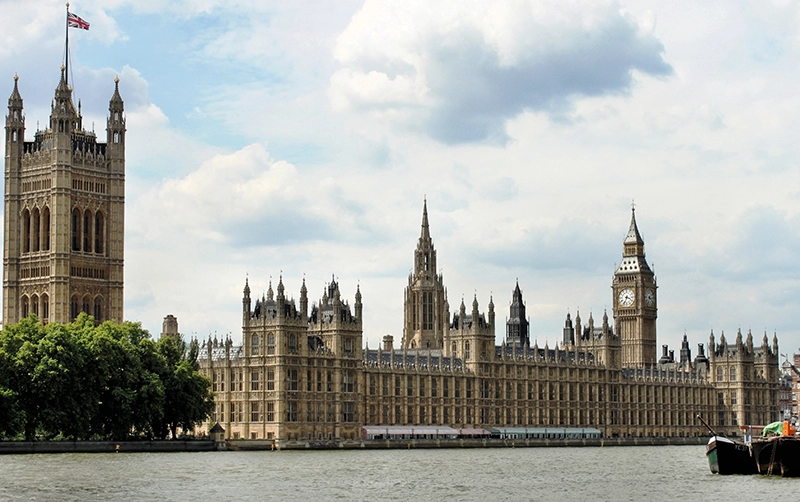General Election – What the Parties are offering on Housing?
The summaries below highlight the key policy areas and approaches as set out in the Party Election Manifestos:

Building New Homes
Labour
Plan to build 1.5 million new homes in England over the next parliament. Proposals include:
- Restoring mandatory housing targets and strengthening the presumption in favour of sustainable development.
- Prioritising a ‘brownfield first’ approach and a more strategic approach to the Green Belt which would allow the release of lower quality ‘grey belt’ land under certain conditions.
- Building a new generation of new towns.
- Introducing new mechanisms for cross boundary strategic planning that will require Combined and Mayoral Authorities to plan strategically for growth in their areas.
- Reform of compulsory purchase compensation rules to improve site assembly and address the inflated price premiums achieved by landowners on land should planning permission be granted.
- Supporting local authorities to fund additional planning officers, through increasing the rate of the stamp duty surcharge paid by non-UK residents.
Conservatives
Plan to build 1.6 million new homes in England over the next parliament. Proposals include:
- Abolishing legacy EU nutrient neutrality rules to unlock development of 100,000 new homes with existing planning permissions.
- Fast tracking the delivery of homes on brownfield land in urban areas and setting up locally led urban development corporations.
- Raising housing density levels in inner London (to levels comparable with other European cities).
- Supporting small and local builders by requiring councils to set aside land for them and lifting Section 106 burdens on smaller sites.
Liberal Democrats
Plan to increase building of new homes to 380,000 per year across the UK. Proposals include:
- Building 10 new garden cities
- Reforming the Land Compensation Act 1961 to allow councils to buy land for housing based on current use value rather than a hope value basis.
- Improving planning outcomes by properly funding local planning departments, by allowing local authorities to set their own fees.
- Expanding neighbourhood planning across England.
- Expanding rural housing provision by encouraging the use of rural exception sites.
- Trialling Community Land Auctions to help fund vital local services and ensure local communities receive a fair share of the benefits of new development in their area.
- Encouraging development of existing brownfield sites.
- Introducing ‘use-it-or-lose-it’ planning permissions.
- Investing in skills, training and modern methods of construction.
Social and Affordable Housing
Labour
The labour manifesto commits to delivering the biggest increase in social and affordable housebuilding in a generation. This will be achieved by:
- Strengthening planning obligations to ensure new developments provide more affordable homes.
- Prioritising the building of new social rented homes.
- Making changes to the Affordable Homes Programme to ensure that it delivers more homes from existing funding.
- Building capacity to enable councils and housing associations to make a greater contribution to affordable housing supply.
Conservatives
The Conservative manifesto makes only two references to social housing; to deliver on existing commitments to introduce ‘Local Connection’ and ‘UK Connection’ tests for social housing and to implement a ‘three strikes and you’re out’ expectation of social housing landlords in cases of anti-social behaviour.
There is also a commitment to boost the availability of affordable housing for local people in rural areas and renew the Affordable Homes Programme to deliver homes of all tenures, and focus on regenerating and improving housing estates.
Liberal Democrats
The Liberal Democrat manifesto includes a target to build 150,000 new social homes per year. Also included are measures to protect the rights of social renters and proactively enforce clear standards and strict time limits for repairs.
Right to Buy
Labour
With the aim of better protecting the existing social rented stock, Labour will review the increased right to buy discounts introduced in 2012 and increase protections on newly-built social housing.
Conservatives
Plan to maintain their existing approach by ensuring RTB discounts continue to rise with inflation. They will also fight any plan by local authorities to abolish the Right to Buy altogether.
Liberal Democrats
Would give local authorities (and National Park Authorities) the powers to end Right to Buy in their areas.

Energy Efficiency / Net Zero
Labour
Labour plan to invest an extra £6.6 billion over the next parliament in initiatives to upgrade energy efficiency and cut bills for families, doubling the existing planned government investment. The Warm Homes Plan will offer offer grants and low interest loans to support investment in insulation and other improvements such as solar panels, batteries and low carbon heating to cut bills.
Conservatives
The Conservatives plan to spend £6 billion on energy efficiency over the next three years to make around a million homes warmer. In addition, an energy efficiency voucher scheme, open to every household in England, will be available to support the installation of energy efficiency measures and solar panels, helping families lower their bills.
Liberal Democrats
Liberal Democrats are committed to making homes warmer and cheaper to heat with a ten-year emergency upgrade programme. Starting with free insulation and heat pumps for those on low incomes, and ensuring that all new homes are zero-carbon.
Private Rented Sector
Labour
Labour will immediately abolish Section 21 ‘no fault’ evictions, preventing private renters being exploited and discriminated against by empowering them to challenge unreasonable rent increases. In addition, Labour will take steps to raise standards in the PRS, including extending ‘Awaab’s Law’ and ensuring homes meet minimum energy efficiency standards by 2030.
Conservatives
Conservatives will pass a Renters Reform Bill, alongside delivering the court reforms necessary to fully abolish Section 21 and strengthen other grounds for landlords to evict private tenants guilty of anti-social behaviour.
Liberal Democrats
Liberal Democrats will deliver a fair deal for renters by immediately banning no-fault evictions, making three-year tenancies the default, and creating a national register of licensed landlords
Home Ownership Initiatives / First time buyers
Labour
Labour will introduce a permanent, comprehensive mortgage guarantee scheme, to support first-time buyers who struggle to save for a deposit, lowering mortgage costs. In addition, Labour proposes to work with local authorities to give first-time buyers the first chance to buy homes on new developments, preventing off plan sales to international investors.
Conservatives
The Conservatives would continue to offer a Mortgage Guarantee scheme and permanently increase the threshold at which first time buyers pay Stamp Duty to £425,000 ( from £300,000). In addition they plan to introduce a new Help to Buy scheme which would provide first-time buyers with an equity loan of up to 20% towards the cost of a new build home, enabling first-time buyers to get onto the housing ladder with a 5% deposit. The scheme will be part funded by contributions from house builders.
Liberal Democrats
Liberal democrats would help people who cannot afford a deposit to own their own homes by introducing a new Rent to Own model for social housing where rent payments give tenants an increasing stake in the property, owning it outright after 30 years.
Homelessness and Rough Sleeping
Labour
Labour is committed to developing a new cross-government strategy, working with Mayors and Councils across the country, to put Britain back on track to ending homelessness.
Conservatives
The Conservatives plan to continue with existing plans to end rough sleeping.
Liberal Democrats
The Liberal Democrat manifesto commits to ending rough sleeping within the next parliament by:
- Urgently publishing a cross-Whitehall plan to end all forms of homelessness.
- Exempting groups of homeless people, and those at risk of homelessness, from the Shared Accommodation Rate.
- Introducing a ‘somewhere safe to stay’ legal duty to ensure that everyone who is at risk of sleeping rough is provided with emergency accommodation and an assessment of their needs.
- Ensuring sufficient financial resources for local authorities to deliver the Homelessness Reduction Act and provide accommodation for survivors of domestic abuse.
Recent Publications
This month there are a number of new reports addressing issues highlighted as part of the General Election campaign:
Report by New Economics Foundation – Reforming Right to Buy – June 2024
This is another report looking to influence the debate around the future of the Right to Buy. It outlines a package of proposed reforms that would retain the RTB in a format that no longer exacerbates the current housing crisis.
The key to delivering meaningful change is to devolve decision making around the RTB to local authorities, enabling councillors, who understand local housing issues, to decide on how the policy should be offered in their area.
Each local authority would have powers:
- to suspend right to buy where it can be demonstrated that the policy is contributing to affordable housing shortages.
- to end right to buy in respect of newly built or acquired homes.
- to introduce measures to prevent homes sold under the right to buy from being let in the private rented sector.
- Reduce discounts and extend qualifying periods.
In addition, Treasury rules should be amended to allow councils greater flexibility and full access to receipts to better provide replacement stock.
Housing Subsidy’s long-term shift from supply to demand and what might be done about it – Prof Kenneth Gibb – UK Collaborative Centre for Housing Evidence – June 2024
This paper examines the long-term shift from supply side housing subsidies providing capital subsidies to build new homes to personal demand side personal housing subsidies to help people pay for housing. This shift has been in progress for the past 50 years resulting in the housing cost element of universal credit representing the largest government subsidy to housing (amounting to more than £31 billion in 2023/24 which equates to about one-tenth of the entire social security budget).
Whilst the paper makes the case for reversing the reliance on demand led subsidies, it sets out the immense difficulties involved in shifting back to capital funding in any material way. Change cannot be accomplished quickly and involves significant cost and funding challenges in advance of beneficial impacts coming into play. However, there is a clear case for rebalancing supply and demand subsidies as part of a consistent long-term policy for the housing system.
English Housing Supply Update Q1 2024 – Savills
This report highlights that planning consents for new housing have fallen below current completions for the first time since 2009 with poor outlook for new home delivery. 232,500 new homes were built in the twelve months to Q1 2024, but only c. 222,000 new homes are estimated to have gained full planning consent in that time.
As a result, completions are now likely to fall even further below housing need – Savills forecasts suggest that the number of new homes being built may be as low as 160,000 in 2024/25.
Diary Date – LGA Webinar – New Regulatory Regimes – Postponed
The LGA webinar bringing together the Housing Ombudsman and Regulator of Social Housing to discuss recent changes and new regulatory requirements has been postponed until after the General Election.
The new date is 25th July 2024 (10am – 11am) For further details see the LGA website
Diary Date – CWAG Annual General Meeting
This will be held on Thursday 19th September 2024 (between 10.00 and 12.00) via Teams.
